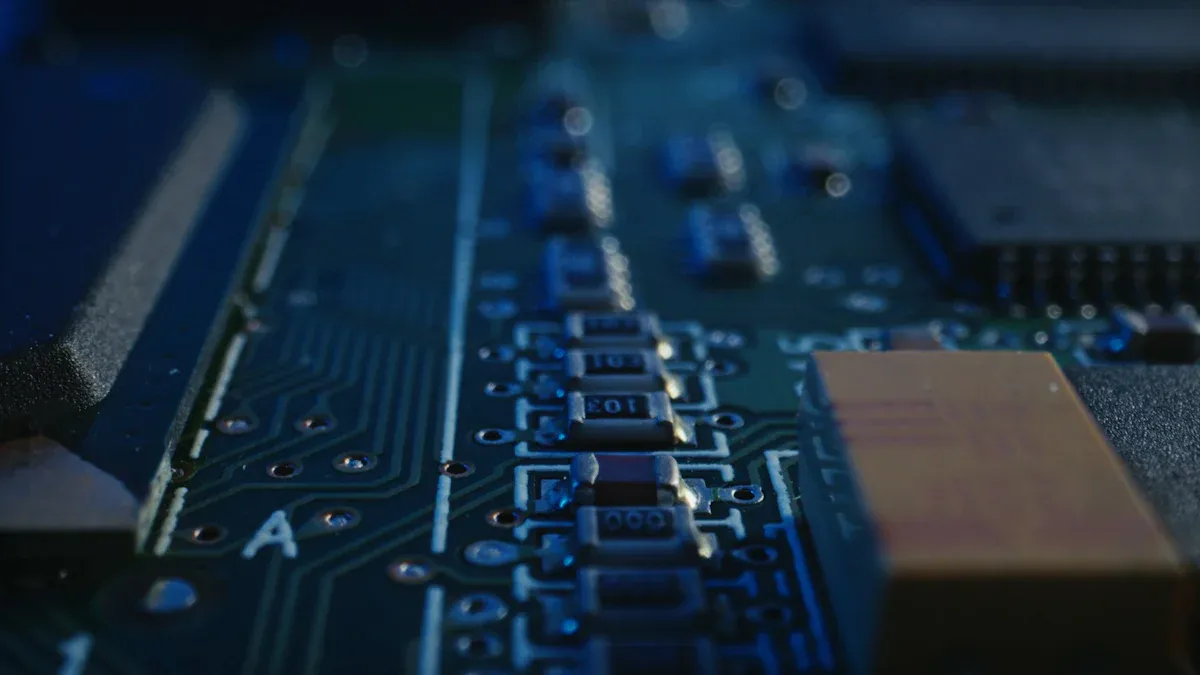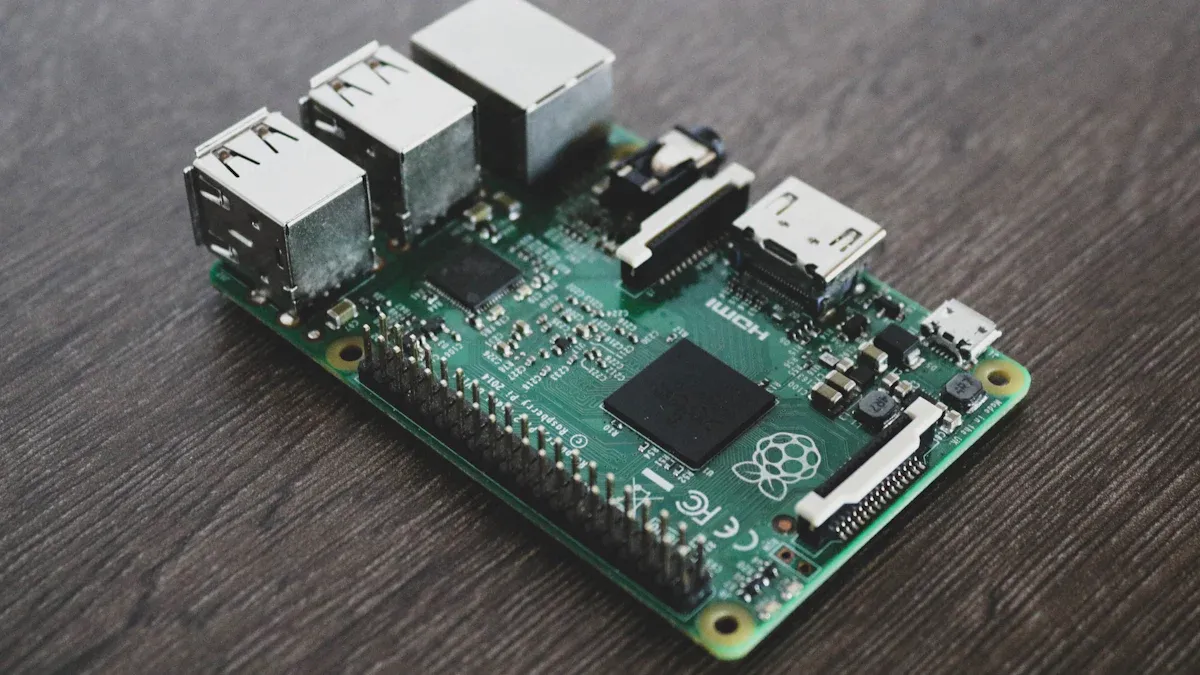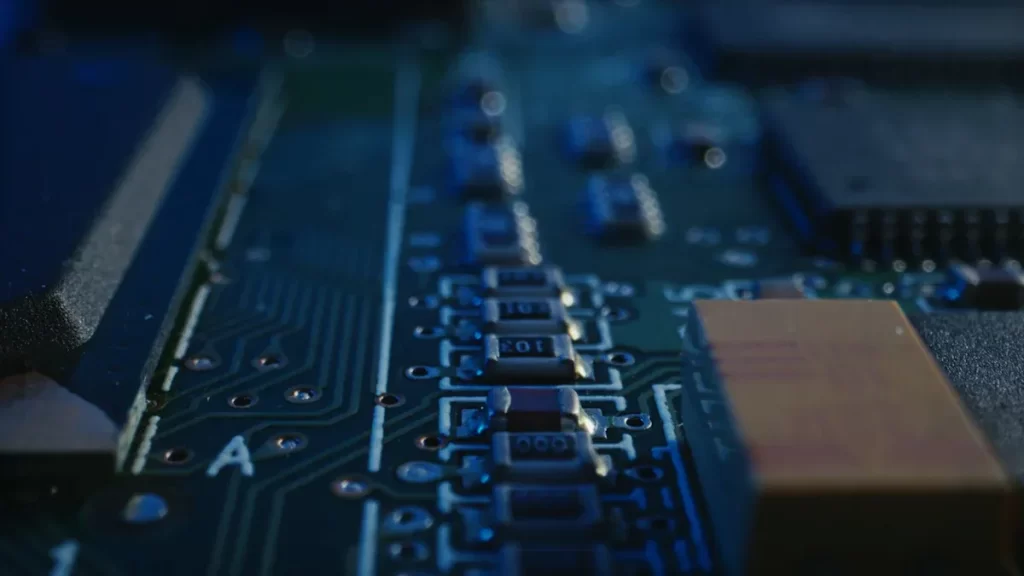
PCB group qualifying marks pcba are the minimum scores required in Physics, Chemistry, and Biology. Achieving these marks is crucial for advancing your education and career aspirations. For those pursuing PCBA (Printed Circuit Board Assembly) certifications, strong PCB group qualifying marks demonstrate excellent technical expertise and problem-solving abilities. These competencies are essential for thriving in electronics-related roles and securing promising opportunities in manufacturing industries.
Key Takeaways
PCB group marks are important for education and career growth in fields like electronics and medicine.
Good scores in Physics, Chemistry, and Biology help you get into top schools and earn important certificates, improving job chances.
Knowing the required marks for your area and program is key for planning and preparing well.
Using good study plans, managing time, and taking practice tests can greatly boost your PCB scores.
Get advice from experts in PCBA to learn tips and get help for doing well in school and your future job.
What Are PCB Group Qualifying Marks?

Definition and significance of qualifying marks
PCB group qualifying marks are the lowest scores needed in Physics, Chemistry, and Biology. These scores show if you understand basic science ideas. They are not just numbers; they prove you know important concepts for higher studies or technical jobs.
These marks are very important. They confirm you have the skills for fields like electronics, medicine, or engineering. For example, in PCBA, good PCB marks show you are skilled in technical work. This is key for jobs needing accuracy and quality in making products.
Tip: Think of qualifying marks as a way to grow, not a problem. They help you prepare for future success.
Academic and career implications of PCB group marks
Your scores in PCB subjects can affect your studies and career. High marks can get you into top schools and programs. They also make you eligible for certifications like PCBA, which are valued in electronics jobs.
In school, qualifying marks let you study advanced courses like medicine or engineering. At work, these marks show you can handle tough tasks in industries focused on quality. For example, in PCBA, employers want people with strong PCB knowledge to ensure good circuit board assembly.
Note: Doing well in PCB subjects can make you stand out in job searches.
Examples of qualifying marks in different educational systems
Qualifying marks differ by country and system. Some places need at least 50% in each subject to pass. Others have higher requirements for competitive programs. For example:
India: Many medical exams need at least 50% in PCB subjects.
United States: AP exams in Biology, Chemistry, or Physics often need a score of 3 or more (out of 5) for college credit.
United Kingdom: A-level students aiming for science degrees usually need grades from A to C in PCB subjects.
These examples show why it’s important to know your system’s rules. Meeting these marks can greatly improve your chances in school and work.
Reminder: Always check the requirements for your program or certification to be sure you qualify.
How Are PCB Group Qualifying Marks Determined?
Role of educational boards and institutions in setting marks
Educational boards and schools decide PCB group qualifying marks. They set these scores to ensure students meet basic academic needs. These marks help students prepare for advanced studies or jobs. Boards study the curriculum and match marks with skills needed in fields like medicine or electronics. For example, in PCB-related jobs, these marks show you understand key ideas.
Schools also focus on fairness when deciding these scores. They want to keep evaluations consistent for all students. By setting clear marks, they guide you to aim for goals that match industry needs.
Factors influencing qualifying marks (e.g., competition, exam difficulty)
Many things affect how qualifying marks are decided. Competition among students is a big factor. In tough exams like MHT CET, marks depend on top students’ performance. Exam difficulty also matters. Harder exams may have lower passing marks because of tricky questions.
Here’s an example of MHT CET marks and percentiles:
MHT CET Marks | MHT CET Percentile |
|---|---|
161+ | 99.50+ |
149-160 | 99.00+ |
139-150 | 98.00-99.00 |
109-130 | 96.00-98.00 |
99-110 | 95.00-96.00 |
This table shows how competition and difficulty affect marks. Higher scores mean better percentiles, proving the need to do well in exams.
Regional and program-specific variations in qualifying marks
Qualifying marks differ by region and program. Different countries have their own rules. Some areas may require higher Physics and Chemistry scores for PCB jobs. Others may focus on Biology for medical courses.
Programs also have unique needs. For example, PCB assembly certifications need good technical subject scores. This ensures you have the skills for quality work in manufacturing. Knowing these differences helps you prepare better for your goals.
Tip: Always check the marks needed for your region and program. This helps you plan and work toward their expectations.
Why PCB Group Qualifying Marks Matter for PCBA
How PCB Subjects Help with PCBA Skills
Knowing Physics, Chemistry, and Biology helps in PCBA work. These subjects teach important ideas for circuit board assembly. Physics explains things like electricity and how circuits work. Chemistry shows how materials are used in soldering and coatings. Biology, though less connected, improves problem-solving skills for testing and fixing issues.
Good PCB knowledge helps with tasks like checking reliability and quality in PCBA. For example, in car electronics, Physics and Chemistry help ensure circuits meet standards. This shows why high PCB group qualifying marks are important for success in electronics jobs.
Tip: Learn PCB subjects well to build strong PCBA skills.
Why Strong PCB Marks Help with PCBA Certifications
PCBA certifications prove your skills and open career doors. High PCB group qualifying marks show you are ready for these certifications. Many programs, like those in quality checks or failure fixes, need strong PCB knowledge. High marks show you can handle tough technical tasks.
Certifications test your skills in circuit design, materials, and assembly. Your PCB marks show you are prepared to pass these tests. Employers like certifications because they ensure good work in manufacturing. Doing well in PCB subjects makes you a great fit for these programs.
Reminder: Certifications are more than papers; they help you grow in PCBA.
Jobs in Electronics and Manufacturing
Electronics and manufacturing offer many jobs for people with PCB and PCBA skills. High PCB group qualifying marks prepare you for roles like circuit design and quality checks. These industries need workers who can make reliable products.
Car electronics is growing fast and needs PCB experts. Engineers here design and build circuits for cars, meeting safety rules. Other jobs include fixing problems in electronic parts. Your PCB marks help you get certifications and stand out for these jobs. Employers want people who can improve products and keep quality high.
Note: Strong PCB marks and certifications can lead to exciting careers in top industries.
Tips to Achieve PCB Group Qualifying Marks

Study strategies for Physics, Chemistry, and Biology
To do well in Physics, Chemistry, and Biology, plan your studies. Break each subject into smaller topics for easier learning. Focus on understanding ideas instead of just memorizing facts. For Physics, practice solving problems about motion and electricity. In Chemistry, learn about reactions and the periodic table. For Biology, draw diagrams to understand things like photosynthesis or cell division.
Use active learning methods like explaining topics in your own words. Teaching someone else can also help you remember better. Use trusted resources like textbooks or online videos to clear doubts. Review your notes often to keep the information fresh in your mind.
Time management and exam preparation techniques
Managing your time well is very important. Make a study plan with time for each subject. Start with harder topics so you have more time to learn them. Use timers to stay focused while studying. Keep your study space neat and free from distractions.
When getting ready for exams, solve old question papers. This helps you know the exam format and improves your speed. Save time to check your answers for mistakes. During the test, read questions carefully and divide your time to finish all parts.
Importance of practice tests and seeking mentorship
Practice tests are very helpful for preparation. They make you feel like you’re in a real exam and boost your confidence. Regular tests show where you need to improve. Work on these weak areas to get better.
Getting help from teachers or experts can also be useful. They can explain hard topics and give study tips. If you want to do well in PCB group qualifying marks pcba, a mentor with PCBA knowledge can guide you. They can teach you about testing and certifications. Their advice can also help you prepare for jobs in fields like car electronics, where quality is very important.
Tip: Use both practice tests and mentorship to improve and reach your goals.
PCB group qualifying marks are important for your studies and career. They help you move to higher education and earn certifications that prove your skills. In PCBA, these marks show you are prepared for technical jobs and meeting industry needs. Focus on learning and improving to do well and find chances in electronics and manufacturing. Every step you take now helps build a better future.
Reminder: Work hard and let your effort lead you to success.
FAQ
What are PCB group qualifying marks, and why do they matter?
PCB group qualifying marks are the lowest scores needed in Physics, Chemistry, and Biology. These scores show you understand basic science ideas. They are important for advanced studies or certifications in areas like car electronics and circuit board making.
How do PCB group qualifying marks help with PCBA certifications?
Good PCB marks show you know technical topics well. This is important for PCBA certifications. These certifications need skills like designing and testing circuits, which come from learning Physics, Chemistry, and Biology.
Are PCB group qualifying marks the same everywhere?
No, these marks differ by place and program. Some countries focus on local rules, while others set higher scores for tough fields like car electronics or special testing jobs.
Can PCB group marks help in electronics jobs?
Yes, high PCB marks can lead to electronics careers. They prepare you for jobs like checking quality, designing circuits, and testing for safety. These roles are important in car electronics and PCBA work.
How can I get better PCB group scores?
Understand the topics, practice often, and ask for help. Use tools like drawings and practice tests. These tips will help you do well in exams and get ready for certifications and jobs in circuit boards and testing work.
See Also
Ensuring Quality Control Throughout The Entire PCBA Process
Expert Techniques For Advanced PCBA Conformal Coating
Best Practices For Low-Volume PCBA Production From 1 To 500
Achieving High-Quality Results In PCBA Manufacturing Techniques





